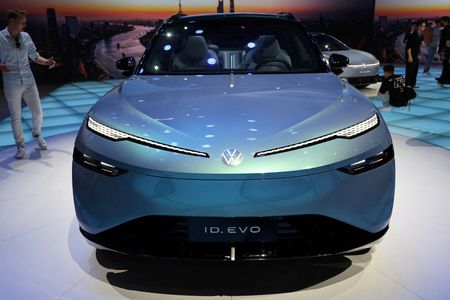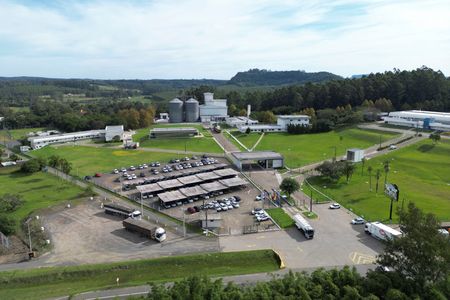By Simon Jessop
LONDON (Reuters) -U.S. textile recycling firm Circ has received backing from the French government and European Union to build a $500 million plant in France that will be the first to recover cotton and polyester on an industrial scale, its chief executive told Reuters.
Announced by the French government on Friday, the plant at Saint-Avold in the northeast of the country will be able to process 70,000 metric tons a year after it starts operating in 2028, and employ 200 people.
Funded through a mix of equity and debt, the 450 million euro ($504.09 million) plant will look to access grants and guarantees including the Strategic Projects Guarantee from the French state, Chief Executive Peter Majeranowski said.
Creating a ‘circular economy’ by recycling more is a key part of the EU’s efforts to reach net-zero emissions by 2050, although efforts to-date have been patchy. Majeranowski said the new factory would mark a turning point for the industry.
“This will be the world’s first industrial scale polycotton (recycling plant),” he said. “Now, most of the clothing produced is a blend of polyester and cotton, and that makes it very difficult to recycle, so having this facility is a major landmark milestone.”
The U.N. has said the fashion industry is responsible for up to 10% of global greenhouse gas emissions and uses more energy than the aviation and shipping industries combined. The industry is also a major consumer of water and polluter of water sources.
A number of companies are developing technologies to recycle the millions of tons of polycotton waste created every year, amid demand from retailers keen to burnish their sustainability credentials and meet tougher regulations.
Circ uses hydrothermal technology to break down the polyester without damaging the cotton, such that both can be recovered in the same process and reused.
Clothing retailers Inditex and Patagonia have both taken stakes in Circ and its recycled materials are already being used by brands including Inditex-owned Zara.
Partners in the building of the factory include Worley, GEA, and Andritz and the aim is to use it as a model for future plants, Majeranowski said, with strong demand from producers and suppliers keen to help fashion firms meet their climate goals.
“We have a lot of interest from all over the world, from South Asia, East Asia, in the States of course, Canada, Australia,” he said.
($1 = 0.8927 euros)
(Reporting by Simon Jessop, Editing by Helen Reid and Susan Fenton)








